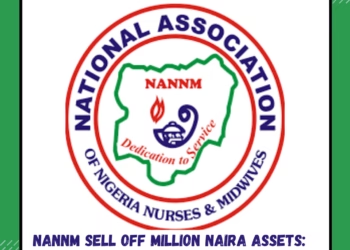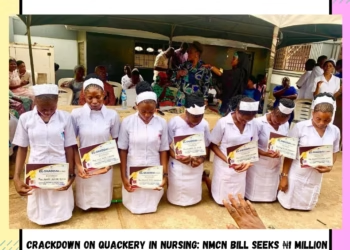Fellow Nurses Africa | Lagos, Nigeria | 20/10/2025

Ghana has signed a landmark Memorandum of Understanding (MoU) with the Caribbean nation of Grenada to recruit trained Ghanaian nurses for Grenada’s health sector.
A deal celebrated as a breakthrough in South–South cooperation, yet raising deep questions about Africa’s healthcare priorities.
The MoU, titled “Recruitment of Ghanaian Nurses for the State of Grenada,” was signed during Grenadian Prime Minister Dickon Mitchell’s visit to Ghana.
It paves the way for the deployment of Ghanaian nurses and allied health professionals to fill urgent workforce shortages in Grenada’s hospitals.
While both governments describe the pact as mutually beneficial, many observers see it as another sign of systemic neglect, a short-term solution to domestic unemployment that risks worsening the long-term health workforce crisis in Ghana.
A typical case of “when unemployment breeds export”
Ghana’s Ministry of Health has admitted that over 74,000 trained health professionals remain at home, with many nurses waiting years for government posting or fair compensation.
The country produces thousands of qualified nurses annually, yet budgetary constraints and underfunded health institutions mean few can be absorbed locally.
For many of these nurses, the Grenada deal feels like a lifeline, a ticket to use their skills, earn a stable income, and gain international exposure.
But a lot of people argue if it truly addresses the situation at hand or rather exposes a painful irony; a nation exporting the very professionals its own hospitals lack.
“When nurses must leave to find dignity, that’s not success, that is a symptom of a failing system,”
South–South Cooperation or Legalized Silent Drain?
The agreement is historic for its South–South nature, an African nation and a Caribbean state joining forces outside traditional Western migration routes.
Everyone should ask these questions:
-
Will Ghana’s domestic staffing gaps widen?
-
Are these nurses being fairly compensated, especially in this new agreement?
-
Is this partnership empowering healthcare workers, or simply relocating Africa’s care crisis?
Without strong retention policies at home, deals such as this may formalize a “talent export” culture, where Africa’s most compassionate professionals are trained locally only to serve abroad.
This deal shines a spotlight on a deeper structural flaw across many African nations:
- High training output, but low absorption capacity.
- Chronic underfunding of hospitals
- Low pay and poor welfare driving strikes and burnout
Until these root issues are fixed, more MoUs may come not as celebration of excellence, but as proof of systemic failure and wastage.
For Grenada, this partnership fills a critical gap. For Ghana, it’s a diplomatic success and for the nursing profession, it is a reminder that caregivers are also citizens who need care not just contracts abroad.
In Summary, the Ghana nursing export to Grenada is not just about jobs, it is a mirror reflecting how Africa trains excellence but fails to retain it.
Fellow Nurses Africa is the independent voice of African Nurses. We educate, inform and support the nurse profession.










